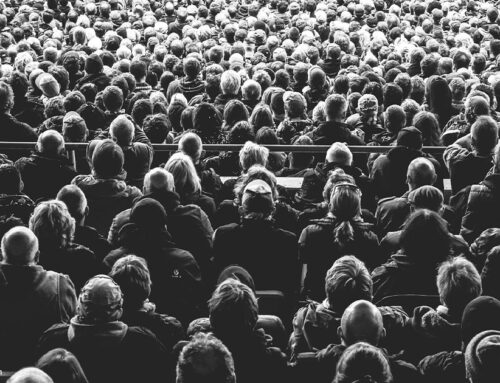Linguist and philosopher Noam Chomsky
ULI DECK—PICTURE ALLIANCE/GETTY IMAGES
I’m not an intellectual nor a philosopher by profession, but it is clear that A.I. presents a clear and present danger while proving in its infancy how easily masses of people are enthralled, easily misled, and captivated by such. Noam Chomsky says A.I. will never be real intelligence and of that, he is spot on. It is artificial in its creation and lives up to its name. Whatever it is or becomes will be the result of the nature of man, which is inherently evil.
I may appear naive, even thick and simpleminded to many who find themselves here, uneducated and whatever discrediting label people may want to attach — but I place my faith and trust in God and in the whole of God’s Word. Not adding one thing, not omitting one thing. I believe. I believe it all. I listen to God as best I can in my finiteness, and whatever emanates from man with wariness in the knowledge, spiritual knowledge rather than intellectual knowledge, that the overwhelming majority of what comes from man is folly, foolishness, vanity, and an ever-changing wisdom that is not eternal.
Thus, the so-called wisdom and knowledge of man is faulty. Feeble in reality. Vain. We think ourselves so advanced and intelligent, so wise and we are nothing — nothing — compared to the INFINITE breadth, depth, and myriad dimensions of Almighty God.
Talk or write of “artificial intelligence” one needs only look to men and women. In their quest to become gods and do way with God the Creator, of Whom none of those vainly imaging themselves gods would have a singular breath or heartbeat except by the will of God to provide them with such.
Most of men’s and women’s pursuits are “the banality of evil” in God’s sight.
The development and advancement, the adulation and idolization of A.I. the people of the world have thus far demonstrated is just further proof of that statement.
Why do the nations rage
and the peoples plot in vain?
The kings of the earth set themselves,
and the rulers take counsel together,
against the LORD and against his Anointed, saying,
“Let us burst their bonds apart
and cast away their cords from us.”
He who sits in the heavens laughs;
the Lord holds them in derision.
Then he will speak to them in his wrath,
and terrify them in his fury, saying,
“As for me, I have set my King
on Zion, my holy hill.”
I will tell of the decree:
The LORD said to me, “You are my Son;
today I have begotten you.
Ask of me, and I will make the nations your heritage,
and the ends of the earth your possession.
You shall break them with a rod of iron
and dash them in pieces like a potter’s vessel.”
Now therefore, O kings, be wise;
be warned, O rulers of the earth.
Serve the LORD with fear,
and rejoice with trembling.
Kiss the Son,
lest he be angry, and you perish in the way,
for his wrath is quickly kindled.
Blessed are all who take refuge in him.
Psalm 2
Let no one deceive himself. If anyone among you thinks that he is wise in this age, let him become a fool that he may become wise. For the wisdom of this world is folly with God. For it is written, “He catches the wise in their craftiness,” and again, “The Lord knows the thoughts of the wise, that they are futile.” So let no one boast in men.
1 Corinthians 3:18-21a
So-called wise men and women of this world will be caught in their own snare. As they become more and more given over to their wicked hearts and minds turning further and further from God, from Christ, from the Holy Spirit, and from the Word of God. Having no foundation in truth their lives are built upon delusion and the lies of the father of lies. Fall greatly they all will.
Claiming to be wise, they became fools,
Romans 1:22
Romans 1 (blueletterbible.org)
Ken Pullen, A CROOKED PATH, Wednesday, March 8, 2023
Iconic leftist intellectual Noam Chomsky says A.I. is far from ‘true intelligence’ and ChatGPT and all chatbots are “marvels of machine learning’ but also the banality of evil, rebooted”
March 8, 2023
By TRISTAN BOVE
Reprinted from Fortune Magazine
Since ChatGPT’s November debut, it and other A.I.-powered chatbots from Google and Microsoft have terrorized users, engaged in disturbing conversations, and provided inaccurate information. But A.I.’s biggest limitation might be what neurologists have long warned about: It may never be able to completely replicate how the human brain works.
While A.I. and intelligent chatbots like ChatGPT may be useful for writing code and planning trips, the technology might never be capable of the original, thoughtful, and potentially controversial discussions that human brains excel at, according to Noam Chomsky, among the most influential contemporary linguists and philosophers.
“OpenAI’s ChatGPT, Google’s Bard, and Microsoft’s Sydney are marvels of machine learning,” Chomsky cowrote with linguistics professor Ian Roberts and A.I. researcher Jeffrey Watumull in an essay published in the New York Times Wednesday. But while Chomsky says ChatGPT could be considered an early step forward, A.I. that can equal or exceed human intelligence is still far away.
Chomsky wrote that A.I.’s lack of morality and rational thought makes it an example of the “banality of evil,” or indifferent to reality and to truth while simply going through the motions spelled out in its programming. This limitation may be an insurmountable obstacle for A.I. to imitate human thinking.
“We know from the science of linguistics and the philosophy of knowledge that they differ profoundly from how humans reason and use language. These differences place significant limitations on what these programs can do,” Chomsky wrote.
He continued: “Indeed, such programs are stuck in a prehuman or nonhuman phase of cognitive evolution. True intelligence is demonstrated in the ability to think and express improbable but insightful things.”
Where A.I. can’t reach the human brain
OpenAI’s ChatGPT has impressed users with its ability to dig through large amounts of data to generate coherent conversations. The technology became the fastest-growing app in history last month and accelerated Big Tech’s rollout of their own A.I.-assisted products.
A.I.-powered chatbots rely on large language models, which dig deeply into terabytes of data to produce detailed information in the form of text. But A.I. predicts what would make the most sense in a sentence to generate its next word, without being able to tell whether what it just said was true or false, or if it’s what the user wanted to hear.
The inability to discern accuracy has led to glaring mistakes and outright misinformation. Chatbot developers have said that mistakes are part of A.I.’s learning process, and that the technology will improve with time. But A.I.’s lack of reasoning may also be the biggest stumbling block to its helping make life better for humanity.
“Their deepest flaw is the absence of the most critical capacity of any intelligence,” Chomsky wrote of current A.I. programs. “To say not only what is the case, what was the case, and what will be the case—that’s description and prediction—but also what is not the case, and what could and could not be the case. Those are the ingredients of explanation, the mark of true intelligence.”
The ability to reason based on available information and come to new and insightful conclusions is a hallmark of the human brain, which Chomsky wrote is designed to “create explanations” rather than “infer brute correlations.” But for all A.I.’s improvements, neurologists have long said that it is still far from being able to replicate human reasoning.
“The human mind is a surprisingly efficient and even elegant system that operates with small amounts of information,” Chomsky wrote.
‘The banality of evil’
A.I. in its current state, unable to think critically and frequently censoring itself from giving opinions, means that it cannot have the kinds of difficult conversations that have led to major breakthroughs in science, culture, and philosophy, according to Chomsky.
“To be useful, ChatGPT must be empowered to generate novel-looking output; to be acceptable to most of its users, it must steer clear of morally objectionable content,” he wrote with his coauthors.
To be sure, inhibiting ChatGPT and other chatbots from making freewheeling decisions is likely for the best. Considering the problems with the tech, experts have urged users not to rely on it for medical advice or for homework. In one example of A.I. going off the rails, a conversation between a New York Times reporter and Microsoft’s Bing last month spiraled into the chatbot trying to persuade the user to leave his wife.
A.I.’s inaccuracies could even contribute to the spread of conspiracy theories, and it risks coercing users into decisions that are dangerous to themselves or to others.
Fears about rogue A.I. may mean that it may never be able to make rational decisions and weigh in on moral arguments, according to Chomsky. If so, the technology may remain a toy and occasional tool rather than a significant part of our lives.
“ChatGPT exhibits something like the banality of evil: plagiarism and apathy and obviation. It summarizes the standard arguments in the literature by a kind of super-autocomplete, refuses to take a stand on anything, pleads not merely ignorance but lack of intelligence, and ultimately offers a ‘just following orders’ defense, shifting responsibility to its creators,” Chomsky wrote.
“In the absence of a capacity to reason from moral principles, ChatGPT was crudely restricted by its programmers from contributing anything novel to controversial—that is, important—discussions. It sacrificed creativity for a kind of amorality.”



![Complete In Prayer: Jack Hibbs on Spiritual Warfare [This completes the series]](https://acrookedpath.com/wp-content/uploads/2024/04/0-71-500x383.jpg)



Leave a Reply, please --- thank you.